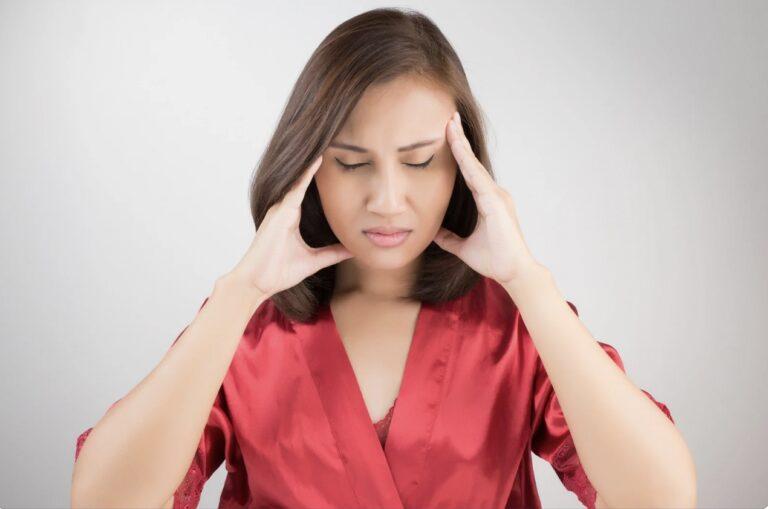What do you do when you feel a dip in your energy levels? You probably do exactly what millions of other people do every day, reach for a cup of coffee or tea for a boost of energy. The only problem is that relying on a caffeine boost as a pick-me-up can actually have the opposite effect on you, with you eventually ending up drinking more, just to feel awake. Going caffeine-free or at least reducing your caffeine intake is definitely worth thinking about for its health benefits.
1. Get enough sleep
A good night’s sleep is one of the best and most natural ways to feel fully energised and to boost energy. Try and get at least 7/8 hours of sleep per night. Get to bed at least an hour earlier than usual for a week or more, to see if that helps boost your mood. Try and relax before you go to bed and don’t look at mobile devices for at least an hour before, as the blue light stimulates the brain and can affect the quality of sleep you have. So, make sure you go to bed early, you’ll wake up feeling refreshed and ready to take on the day. If you can’t get at least eight hours, try fitting in a power nap or two during the day. You’ll feel more rested if you do.
2. You are what you eat
This is so true. Eating well with lots of fruit and veggies can also help you avoid an energy slump. These foods are naturally high in fibre, which influences glucose absorption so your blood sugar levels stay steady. Leafy greens also contain B vitamins, which improve your cells’ energy-making process.
Simple carbs, such as white bread, pasta and sugary foods may satisfy your cravings and make you feel more awake, but not for long. After, comes a crash, where you feel more exhausted than you did before. This leads to a cycle where you’re constantly trying to consume more sugars and carbs, chasing that initial alertness. Instead, try potatoes, whole grain bread, rice and pasta or other carbohydrates, or foods with a good mix of healthy fats and proteins, such as chicken, fish, beans and pulses.
Add a few Chia seeds to your meal too, these help increase energy levels. Chia seeds, known as the “little miracle” seeds are native to Mexico and Guatemala. These tiny energy boosters offer a long list of nutrients including fibre, protein, manganese, zinc, B1, B3, antioxidants, calcium and omega-3 fatty acids. These all help to promote healthy skin, balance your blood sugar, boost energy and can even aid in weight loss.
Be aware, if you’re trying to replace caffeine with energy drinks, read the labels. Many energy drinks are packed full of sugars and also contain caffeine. Black tea, green tea and chocolate also contain caffeine, so you have to factor this in as well!
Sometimes our diets don’t provide us with all the essential vitamins and minerals that we need for optimal health and well-being; in these cases taking supplements might be beneficial for boosting energy levels naturally. Speak with your doctor about what kind of supplements would be right for you before starting any new regime; they may suggest vitamin B12 or iron supplementation, depending on your individual needs!
3. Move
If you have a sedentary/desk-bound job, then make sure you take regular breaks. It is important to try and get 10,000 steps in a day and even better try to do some exercise before or after your work day to help release endorphins, which in turn increase your energy. You may not feel like doing physical activity, but even a 15-minute brisk walk can boost your energy levels and give you that pick-up you so need and improve your overall well-being. Yoga, spinning, a run or a HIIT class will all get your heart rate up, your blood flowing, boost your mood and your energy levels, even if it is for just a short period.
Moving to music is a great way to boost your mood instantly – listening to upbeat music has been proven to increase dopamine levels which will make you feel alert and energised! Why not create a playlist specifically dedicated to energising yourself? That way, whenever you need an extra pick-me-up, simply press play!
4. Don’t get stressed!
Stress is exhausting and uses up lots of your energy, making you prone to feeling much more lethargic. If you’re feeling stressed look at taking up meditation, yoga, tai chi or find activities that make you feel relaxed and improve your mental health. Listening to relaxing music, having technology-free breaks (especially from social media), taking a bubble bath or just introducing periods of time just for you to be.
5. Lose Weight
Excess weight being carried around all day can put a strain on your body and make you feel exhausted. It also puts extra strain on your heart, which can cause tiredness. Lose weight and you’ll feel much more energetic. Take baby steps to making daily changes, from having a lunchtime walk, taking the stairs instead of the lift, taking up exercise classes or doing group sports. Once the weight drops off your energy levels will soar!
6. Cut down on alcohol
Alcohol helps many people to relax and fall asleep, but you will sleep less deeply when you’ve had a drink, so even if you get 8 hours of sleep, it may not be “quality sleep” and this can then impact your energy levels the next day, making you want to reach for the Starbucks. Try and limit your weekly alcohol intake and stick to the recommended units per week.
7. Stay hydrated
Tiredness is after all one of the first signs of dehydration. Water dehydration can have a big impact on your energy levels and your health, so make sure you’re staying well hydrated. Your mind is powerfully influenced by your hydration level. A warm glass of water with a bit of lemon is a good way to start. The lemon helps to make that first glass of water taste better, and also floods your body with vitamin C, which can improve the quality of your skin; it rehydrates you after a night’s sleep, aids in digestion and even supports weight loss. Carry on drinking water throughout the day and drink water before you eat, as you may confuse thirst for hunger.
If caffeine isn’t something you want to (or should) rely on every day, these seven simple tips should help provide some natural alternatives that don’t involve drinking coffee all day long! Try incorporating one or two into your daily routine each week, until eventually they become second nature; before long you won’t need caffeine anymore, because these tips will have become part of your lifestyle habits! Good luck!
Sources
Medical Disclaimer
NowPatient has taken all reasonable steps to ensure that all material is factually accurate, complete, and current. However, the knowledge and experience of a qualified healthcare professional should always be sought after instead of using the information on this page. Before taking any drug, you should always speak to your doctor or another qualified healthcare provider.
The information provided here about medications is subject to change and is not meant to include all uses, precautions, warnings, directions, drug interactions, allergic reactions, or negative effects. The absence of warnings or other information for a particular medication does not imply that the medication or medication combination is appropriate for all patients or for all possible purposes.







